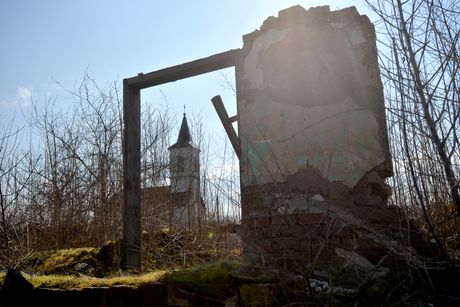Serbian MPs to soon debate proposed Resolution on Ustasha Genocide

The Association of Prisoners in Jasenovac, the Association of Victims of the Second World War and SUBNOR have proposed to the Serbian National Assembly a resolution on the genocide committed in the NDH (Independent State of Croatia) against Serbs, Jews and Roma (1941-1945), and to declare April 28 a day of remembrance of Serb victims killed during the last century.
They linked their proposal to the 80th anniversary of the Nazi bombing of Belgrade in 1941, and the beginning of the Ustasha (NDH regime's forces) pogrom on April 28, 1941, that started with a massacre in Gudovac near Bjelovar, Croatia.
"This idea is 75 years old, but during Tito's time it was out of the question, and after him, there was no political will to do it," says Gojko Roncevic Mraovic from the Association of Prisoners of Jasenovac, who was himself as a child imprisoned in the Jastrebarsko camp (a part of the Jasenovac complex of extermination camps), located between Zagreb and Karlovac.
"In 2016, we collected 54,000 signatures in favor of that resolution, but it was not adopted. Now we have found interlocutors in power and we believe that the proposal will pass, and we are supported by the World Jewish Congress, SANU (Serbian Academy of Sciences and Arts) and veterans' organizations," says Roncevic, adding that it is still unknown how many Serbs, Roma and Jews were killed in the NDH, just as the exact number of Jasenovac victims is unknown.
He explains that the capacity of the Jasenovac camp was 5,000-6,000 prisoners, and that it would happen that as many would arrived in a single convoy, of which many would get killed before they entered the camp. Many of them, he says, were thrown from the Branik platform into the Sava River, so the corpses would wash up in Zemun and the Great War Island, in Belgrade.
The draft resolution states that its goal is to permanently preserve the memory about the Ustasha genocide, as well as facing the past and distancing from the crimes, which will contribute to good neighborly relations and peaceful coexistence of future generations. Special emphasis is put on the genocide committed against children in the Independent State of Croatia, which was the only country to have death camps for children.
As it is stated, 19,432 chldren were killed in Jasenovac alone, out of the total of 71,560 children killed in the Independent State of Croatia. The Ustasha genocide, it is stated, was accompanied by 84 massacres, 2,643 local crimes, 47 Ustasha camps, 84 karst pits into which people were thrown while still alive. The idea of those proposing the resolution is that "the Ustasha ideology and the Holocaust should enter the collective memory of humanity as a warning not to repeat such crimes." The use of Ustasha symbols and greetings, such as, "For home ready" ("Za dom spremni") is also condemned in the draft.
Gojko Roncevic was born in Kordun, and spent three months in Jastrebarsko. 30 members of his family were killed.
He also survived "reeducation"
According to Roncevic, the Ustashas imprisoned children aged 1 to 14 in the Jastrebarsko camp. Due to illness, hunger and abuse, 10 to 12 children would die every day. He survived because, as a 7-year-old, they put on an Ustasha uniform on him, preparing him for "reeducation."
(Telegraf.rs)
Video: Novinar Telegrafa "svat" na grčkoj svadbi: Oficiri nevestu svog kolege dočekali zveketom mačeva
Telegraf.rs zadržava sva prava nad sadržajem. Za preuzimanje sadržaja pogledajte uputstva na stranici Uslovi korišćenja.

